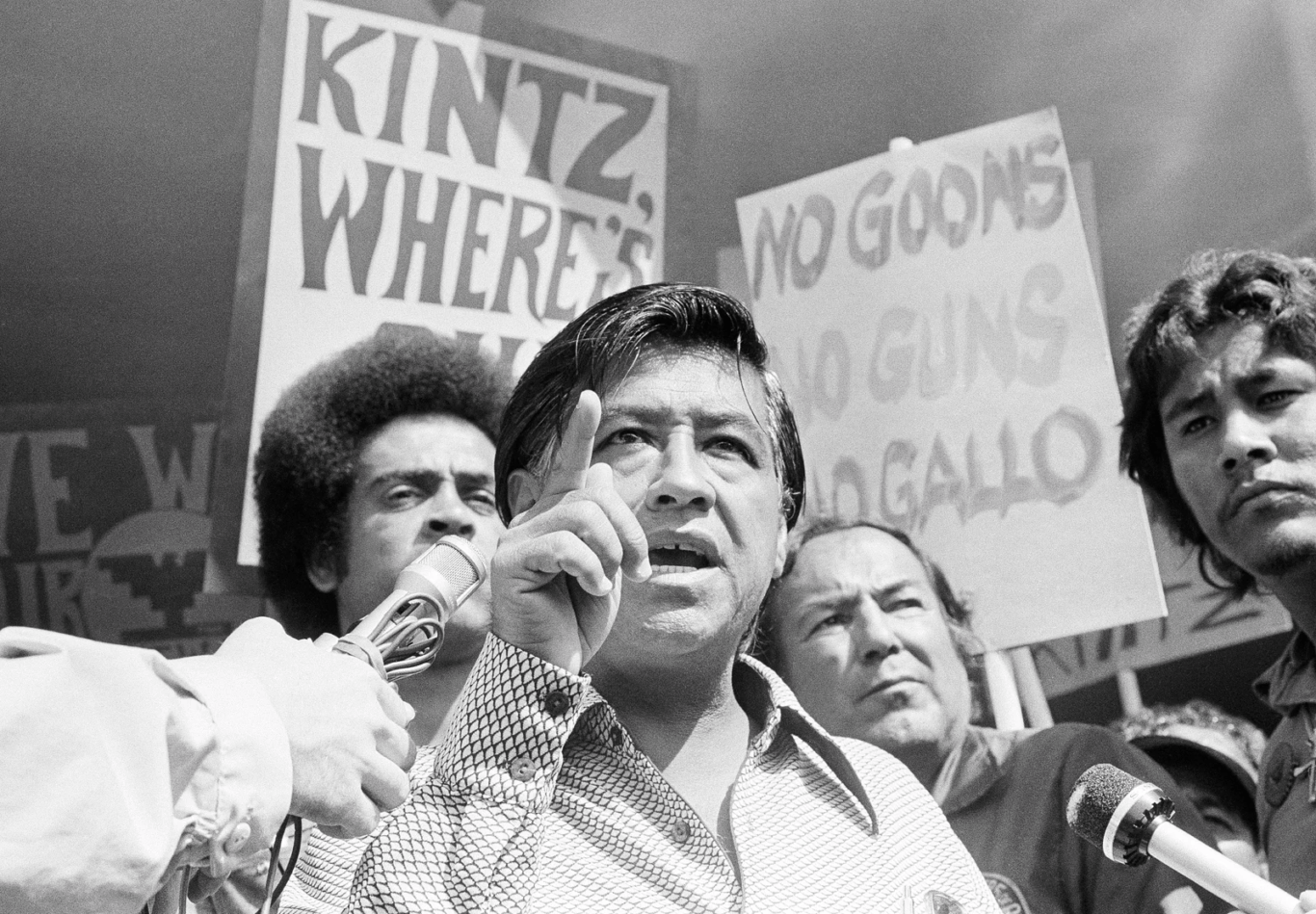César ChávezThe fight is never about grapes or lettuce. It is always about people.
César Chávez and the Roots of Food Justice
César Chávez and the Roots of Food Justice
Oregon Food Bank works to carry on the legacy of César Chávez through solidarity with farmworkers and all essential food industry workers who grow, harvest, package and transport food in communities throughout our region.
By Equity, People and Culture
César Chávez was a Mexican-American labor and civil rights activist who dedicated his life to advancing the rights and working conditions of farmworkers in the United States.
Chávez’s activism traces back to the 1930s, when foreclosure displaced his family from their Arizona home in the wake of the Great Depression. Chávez’s parents took on roles as farmworkers in California to help make ends meet, and their shared experiences with race and class discrimination eventually led him to grassroots organizing with a leading Latino civil rights group, the Community Service Organization (CSO).
Throughout the 1950s Chávez worked to activate many first-time voters to take part in their right to vote against policies that promote race and class discrimination. He became the national director of CSO, leaving in 1962 to build one of the nation’s first farmworkers’ unions with fellow organizer, Dolores Huerta.
Using money from their own savings, the pair launched the National Farm Workers Association, ushering in a new era of nonviolent protest and organizing to secure humane working conditions and fair wages for farmworkers. The National Farm Workers Association later became the United Farm Workers (UFW).
During Chávez’s time, many farmworkers were not covered by minimum wage laws, overtime protections or unemployment insurance because of historical, racist labor policies that are inextricably linked to the history of slavery and sharecropping. Chavez and his peers were able to make incredible strides to improve pay, working conditions and more for thousands of agricultural workers throughout the 1960s and 70s. Yet, to this day, the longtime consequences of White supremacy continue to force many farmworkers into hunger and poverty — despite the essential role they play in keeping food on our tables.
In Oregon, we’ve taken important steps forward to address this injustice by ensuring farmworkers are included in our overtime protections. This makes us the eighth state in the U.S. to pass farmworker overtime — and serves as proof that the fight is far from over. There is so much work to be done!
To honor César Chavez’s life and legacy, we maintain our dedication to workers’ rights, equity and racial Justice — and to empower our community through organizing efforts and policy change. And we do so while acknowledging the full truth of Chávez’s work, which at times veered into harmful tactics and even violence toward undocumented immigrants and other workers who the agriculture industry often used as strikebreakers to maintain the exploitation of working people. Undocumented people often turn to these types of jobs out of necessity — and experience the same hunger, poverty and exploitation as Chávez and other striking workers, layered with the constant threat of violence and deportation. We also know that Chávez made derogatory remarks about the role of women and excluded women from leadership positions within the United Farm Workers Union, despite the contributions of Dolores Huerta, Maria Moreno and many other women who played a foundational role in the movement.
Single mothers and caregivers are an equity constituency of Oregon Food Bank and cannot be overlooked in the farmworker movement. Many migrant workers are also mothers, and disproportionately face low wages, poor working conditions and discrimination. Despite such significant obstacles, these women continue to organize and advocate for better pay, safer working conditions and access to basic rights like healthcare and childcare. We recognize and honor the contributions of many women leaders whose lived experience and leadership has been instrumental to achieving significant advances in labor rights for all workers.
It is important to name this complex history and ensure that our own organizing efforts for farmworkers’ rights do not repeat the mistakes of the past — even as we celebrate the legacy of César Chávez and his peers many years ago. We hope to continue this mission with a spirit of humility and accountability, continuing to center the experiences of people facing disproportionate hunger and poverty. Because with our communities in the lead, we can truly create a world where hunger and its root causes cease to exist.
This article was updated on April 11 to acknowledge César Chávez’s complex history of misogynistic behavior and ensure that our own organizing efforts for farmworkers’ rights do not repeat the mistakes of the past. Oregon Food Bank appreciates our community for raising these points and strengthening our equity lens.
Resources:
Learn more about the farmworker’s movement from the perspectives of women by reading this NPR interview with Dolores Huerta and this PBS article that highlights some of the amazing women that made this movement possible
Watch this short video about César Chávez, his complex history and the significance today
Watch A Song for César documentary
Learn about the history of the United Farm Workers
